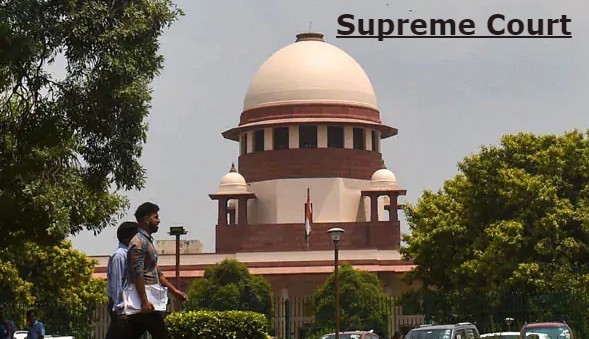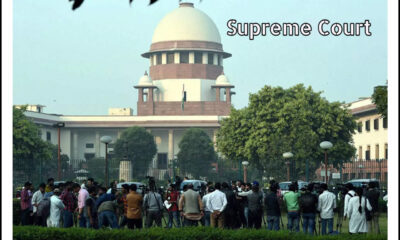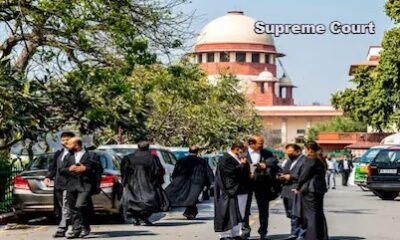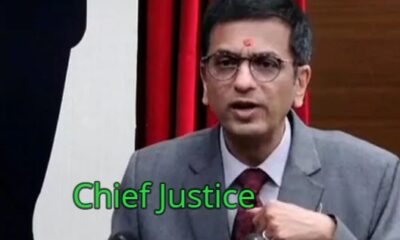Latest News
Why the Supreme Court Freed Three Convicted Rapists
Published
2 years agoon

In 2014, a trial court found the trio—Ravi Kumar, Rahul, and Vinod—guilty and handed out a death sentence. The verdict was upheld by the Delhi High Court.
New Delhi: Yesterday, the Supreme Court discharged three men who had been given the death penalty for the 2012 rape, torture, and murder of a 19-year-old woman. According to the Supreme Court, the prosecution “failed to prove its case” against the individuals, therefore they should be given “the benefit of the doubt.”
The trial court found the three, Ravi Kumar, Rahul, and Vinod, guilty and gave them death sentences in 2014. The men were compared by the Delhi High Court to “predators” prowling the streets “searching for prey,” and the court upheld the death penalty.
The prosecution, however, failed to prove the charges against the three men “beyond a reasonable doubt,” according to a Supreme Court panel chaired by Chief Justice UU Lalit, and the jury functioned like a “passive umpire” in condemning them.
The Supreme Court stated, citing what it called “glaring breaches” in the trial, that the identification of the accused was not proven by the prosecution.
Ten of the 49 witnesses were not subjected to cross examination during the trial, the court noted.
“Cases should be decided by the courts strictly on the basis of the law. Courts shouldn’t be swayed by external moral demands or anything else, “declared the Supreme Court.
The other two judges on the panel were Justices Bela M. Trivedi and Ravindra Bhat.
The incident occurred months before a 23-year-old student was gangraped and killed by five men in Delhi, which resulted in widespread protests, widespread indignation, and significant reforms to the legislation on sexual offences.
Days after being abducted in February 2012, the young woman’s burned and dismembered body was discovered in a field in the Rewari region of Haryana. She was hit with vehicle tools and earthen pots, based on the severity of her wounds.
Investigations indicated that the woman had alcohol injected into her private areas and that acid had been thrown into her eyes.
The three requested a lesser punishment when they appealed the Delhi High Court decision to the Supreme Court.
The Delhi Police had argued against a death penalty reduction in the Supreme Court. They had claimed that in addition to the victim, society was also the target of the crime.
The defendants’ defence had argued that their sentence should have been reduced based on their age, family history, and criminal history.
The girl’s parents expressed their “brokenness” at the Supreme Court ruling but stated that they will press on with their legal battle. “Justice is why we came here. This legal system is blind.”

You may like
-


Muslim quota in Karnataka: Supreme Court rejects political remarks
-


the Indian government calls same-sex marriage “elitist”
-


The Supreme Court will hear 14 opposing parties’ petition on April 5 against the “arbitrary” use of the Enforcement Directorate ( ED ) and CBI.
-


The Supreme Court establishes an expert committee to investigate the Adani
-


The Chief Justice orders the lawyer, “Be quiet, and leave the court immediately.”
-


Adani Case: Supreme Court rejects sealed cover suggestion by central government